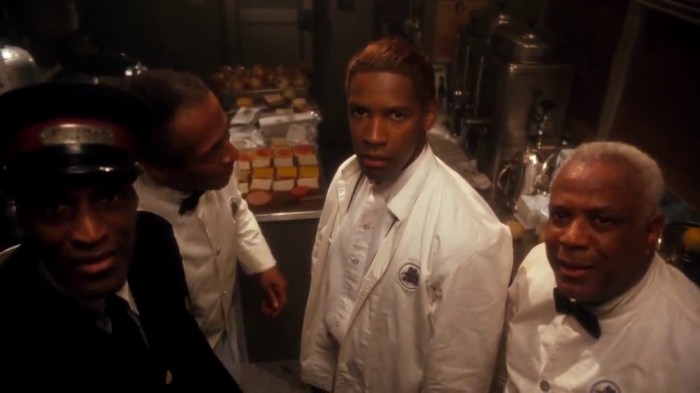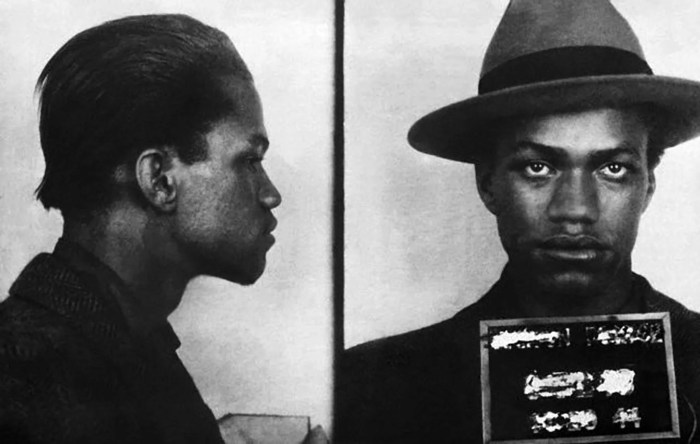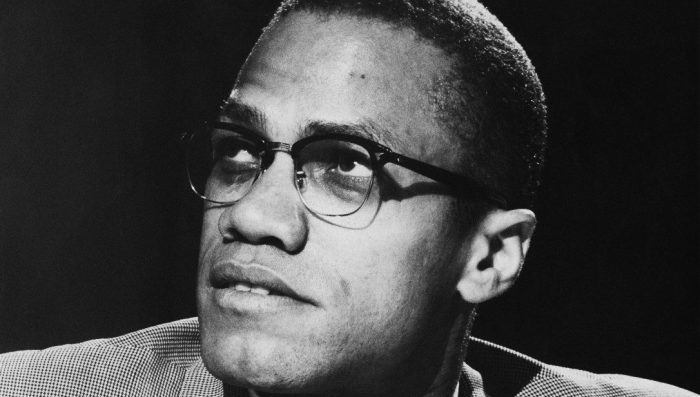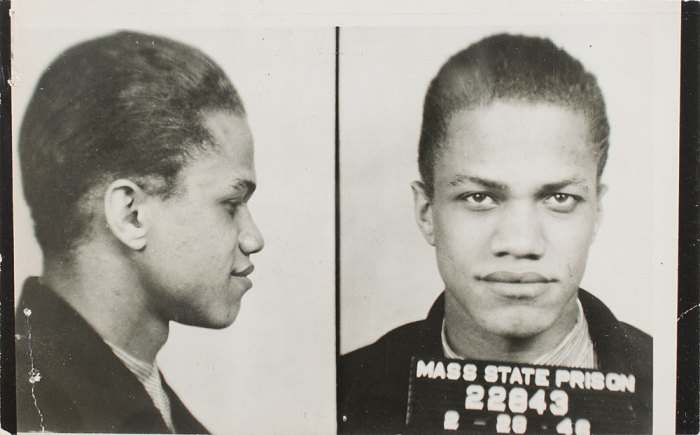My first conk malcolm x – My first conk, Malcolm X’s early life was marked by adversity and resilience. From his childhood in Omaha, Nebraska, to his experiences with racism and discrimination, these formative years shaped the man who would become a prominent civil rights leader.
Malcolm’s early experiences instilled in him a deep understanding of the systemic injustices faced by African Americans. His father’s activism and the tragic loss of his mother to racism left an indelible mark on his young mind. These events fueled his determination to fight for equality and justice.
Malcolm X’s Early Life and Influences

Malcolm X’s formative years were marked by adversity and racial prejudice. Born Malcolm Little in Omaha, Nebraska, in 1925, he faced discrimination from an early age. His father, an outspoken Baptist minister, was murdered by white supremacists when Malcolm was six years old.
Following his father’s death, Malcolm’s family struggled financially, and he was placed in foster care. His experiences with racism continued throughout his childhood, shaping his worldview and igniting his passion for social justice.
Family Background
- Father: Earl Little, a Baptist minister and activist
- Mother: Louise Little, a homemaker
- Eight siblings
Education
- Attended Lansing Eastern High School
- Dropped out at age 15
Influences
- Marcus Garvey:Jamaican activist who advocated for Pan-Africanism
- Elijah Muhammad:Leader of the Nation of Islam
- Personal experiences with racism:Witnessing the murder of his father, being discriminated against in school and public spaces
Malcolm X’s Role in the Nation of Islam

Malcolm X’s involvement with the Nation of Islam (NOI) was pivotal in shaping his ideology and activism. Recruited into the organization in 1948, he quickly rose through the ranks due to his charisma and oratorical skills.
Recruitment and Rise to Prominence
Malcolm X’s recruitment into the NOI occurred during a period of personal crisis and vulnerability. He had recently experienced racial discrimination and police brutality, leading him to seek a sense of belonging and purpose.
Within the NOI, Malcolm X found a community that embraced his experiences and offered a clear and militant philosophy of Black empowerment. His passionate speeches and unwavering belief in the NOI’s teachings made him a prominent figure within the organization.
Contributions to the NOI’s Growth and Ideology
Malcolm X’s contributions to the NOI were significant. He played a crucial role in expanding the organization’s membership, establishing temples in major cities, and developing its ideology.
- Expansion of Membership:Malcolm X’s charisma and ability to connect with people helped the NOI grow from a small organization to a national movement.
- Temple Establishment:He was instrumental in establishing NOI temples in major cities such as New York, Chicago, and Los Angeles, spreading the organization’s message to a wider audience.
- Ideological Development:Malcolm X’s influence shaped the NOI’s ideology. He emphasized the importance of Black self-defense, separation from white society, and economic independence.
Reasons for Split from the NOI
Despite his significant contributions, Malcolm X’s relationship with the NOI began to deteriorate in the early 1960s. Several factors contributed to his eventual split from the organization:
- Leadership Disputes:Malcolm X clashed with NOI leader Elijah Muhammad over issues of leadership and direction.
- Ideological Differences:Malcolm X’s views on the role of violence, the potential for reconciliation with white society, and the importance of internationalism diverged from Muhammad’s teachings.
- Personal Conflicts:Allegations of corruption and personal misconduct within the NOI further strained Malcolm X’s relationship with the organization.
Malcolm X’s split from the NOI in 1964 marked a significant turning point in his life and activism. It led him to develop his own independent philosophy and pursue a more global approach to fighting for racial equality.
Malcolm X’s Pan-Africanist and Internationalist Perspectives

Malcolm X’s activism extended beyond the borders of the United States. He embraced Pan-Africanism, advocating for the unity and liberation of all people of African descent worldwide. His internationalist perspective also led him to forge alliances with leaders from various African countries and beyond.
Travels and Interactions
Malcolm X’s travels to Africa, the Middle East, and Asia profoundly influenced his views. He met with leaders such as Kwame Nkrumah of Ghana, Gamal Abdel Nasser of Egypt, and Ahmed Sukarno of Indonesia, discussing issues of colonialism, imperialism, and the need for global solidarity.
Pan-Africanist Beliefs
Malcolm X believed that African Americans were part of a global African diaspora and that their struggles were interconnected with those of other oppressed people of color. He advocated for a unified African nation, free from European colonialism and exploitation.
International Alliances
Malcolm X sought to build alliances with non-African nations that shared his anti-imperialist and anti-racist views. He met with leaders from China, the Soviet Union, and Cuba, exploring potential collaborations in the fight against oppression.
Influence on Activism
Malcolm X’s Pan-Africanist and internationalist perspectives broadened his understanding of the global nature of racism and imperialism. They influenced his call for a more inclusive and global movement for liberation, transcending national boundaries and uniting people of all backgrounds.
Malcolm X’s Assassination and Its Aftermath

On February 21, 1965, Malcolm X was assassinated while giving a speech at the Audubon Ballroom in Harlem, New York City. Three members of the Nation of Islam were convicted of the murder: Thomas Hagan, Norman 3X Butler, and Thomas 15X Johnson.
The assassination sent shockwaves through the civil rights movement and American society, and its impact continues to be felt today.
Malcolm X’s assassination was a major setback for the civil rights movement. He was a charismatic and influential leader who had helped to raise the consciousness of African Americans about their rights and their place in American society. His death left a void in the movement that was difficult to fill.
My first conk Malcolm X was like a blur, moving as fast as a cheetah on the hunt. The similes for as fast as are endless, but none can fully capture the lightning speed with which he threw that punch.
It was a moment that forever etched itself into my memory, a testament to the raw power and determination of a man who would become a legend.
In the years since his assassination, Malcolm X’s legacy has only grown. He is now considered one of the most important figures in American history, and his ideas continue to inspire activists and social justice movements around the world.
Investigation and Trial
The investigation into Malcolm X’s assassination was complex and controversial. The three men who were convicted of the murder all had ties to the Nation of Islam, and there were allegations that the organization itself was involved in the plot.
However, no evidence was ever presented to support these claims.
The trial of the three men was also controversial. The defendants were represented by a team of lawyers who were known for their radical politics, and the trial was often disrupted by protests. In the end, the jury found all three men guilty of murder, and they were sentenced to life in prison.
Impact on the Civil Rights Movement
Malcolm X’s assassination had a profound impact on the civil rights movement. He was a major figure in the movement, and his death left a void that was difficult to fill. In the aftermath of his assassination, the movement became more divided, and there was a rise in violence and unrest.
Malcolm X’s assassination also had a significant impact on American society. He was a controversial figure, but he was also a powerful voice for change. His death helped to raise awareness of the plight of African Americans, and it inspired many people to get involved in the civil rights movement.
Legacy
Malcolm X is now considered one of the most important figures in American history. His ideas continue to inspire activists and social justice movements around the world. He is a symbol of resistance and hope, and his legacy will continue to inspire generations to come.
Malcolm X’s Impact on Literature, Music, and Film

Malcolm X’s life and work have left an indelible mark on literature, music, and film. His ideas and experiences have been explored and interpreted by artists across various mediums, inspiring countless works that continue to shape our understanding of race, identity, and social justice.
Literature
Malcolm X’s autobiography, co-written with Alex Haley, has been widely acclaimed as a powerful and influential work. It provides a deeply personal account of his life, from his early years to his rise as a prominent leader in the Nation of Islam and his eventual break from the organization.
- The Autobiography of Malcolm X(1965): A groundbreaking autobiography that offers a raw and unflinching look into Malcolm X’s life and beliefs.
- Malcolm X: A Life of Reinvention(2021) by Manning Marable: A comprehensive biography that explores Malcolm X’s evolution as a thinker and activist.
- The Fire Next Time(1963) by James Baldwin: A collection of essays that examines the racial climate in America, drawing inspiration from Malcolm X’s experiences.
Music
Malcolm X’s speeches and writings have resonated with musicians across genres, inspiring songs that explore themes of racial equality, social justice, and self-empowerment.
- “Message to the Grassroots”(1963) by Nina Simone: A powerful anthem that uses Malcolm X’s words to convey a message of hope and resistance.
- “Malcolm X”(1964) by Sam Cooke: A moving tribute to Malcolm X’s life and legacy, highlighting his courage and determination.
- “Who Killed Malcolm X?”(1972) by Gil Scott-Heron: A thought-provoking song that questions the circumstances surrounding Malcolm X’s assassination.
Film
Malcolm X’s life and work have been the subject of numerous films, both documentary and feature-length. These films have played a significant role in bringing his story to a wider audience.
- Malcolm X(1992): A critically acclaimed biopic directed by Spike Lee, starring Denzel Washington as Malcolm X.
- Malcolm X: Make It Plain(1994): A documentary that explores Malcolm X’s life and ideas through archival footage and interviews.
- The Murder of Malcolm X(1979): A documentary that investigates the circumstances surrounding Malcolm X’s assassination.
Multimedia
Beyond literature, music, and film, Malcolm X’s legacy continues to be explored and interpreted through various multimedia platforms, including podcasts, documentaries, and online resources.
- The Malcolm X Podcast: A podcast that explores Malcolm X’s life and ideas, featuring interviews with scholars and activists.
- Malcolm X: A Graphic Biography(2015): A graphic novel that tells Malcolm X’s story in a visually engaging format.
- The Malcolm X Project: An online resource that provides access to Malcolm X’s speeches, writings, and other materials.
Malcolm X’s Speeches and Writings
Malcolm X was a prolific speaker and writer whose words continue to inspire and provoke today. His speeches and writings covered a wide range of topics, from the plight of African Americans in the United States to the importance of Pan-Africanism and internationalism.
Speeches
- Message to the Grass Roots (1963):In this speech, Malcolm X argued that African Americans should not wait for white people to give them their rights but should instead take action to achieve them. He also criticized the nonviolent approach of Martin Luther King Jr.,
arguing that it was ineffective.
- The Ballot or the Bullet (1964):In this speech, Malcolm X argued that African Americans should use any means necessary, including violence, to achieve their goals. He also criticized the Democratic and Republican parties, arguing that they were both controlled by white people and did not have the interests of African Americans at heart.
Writings, My first conk malcolm x
- The Autobiography of Malcolm X (1965):This autobiography, written with the assistance of Alex Haley, is a powerful account of Malcolm X’s life and his journey from a troubled youth to a prominent civil rights leader. The book provides a unique insight into the mind of one of the most important figures in American history.
- Malcolm X Speaks: Selected Speeches and Statements (1965):This collection of speeches and statements provides a comprehensive overview of Malcolm X’s thought. The book covers a wide range of topics, from race and religion to politics and economics.
FAQ: My First Conk Malcolm X
What was Malcolm X’s childhood like?
Malcolm X’s childhood was marked by poverty, racism, and violence. He witnessed the lynching of his father and the institutionalized discrimination that African Americans faced.
How did Malcolm X become involved in the Nation of Islam?
Malcolm X joined the Nation of Islam in 1946, seeking a sense of belonging and purpose. He quickly rose through the ranks, becoming a prominent spokesperson for the organization.
What were Malcolm X’s views on race and religion?
Malcolm X initially advocated for the separation of races and the establishment of a separate black nation. However, his views evolved over time, and he eventually embraced a more inclusive and internationalist perspective.